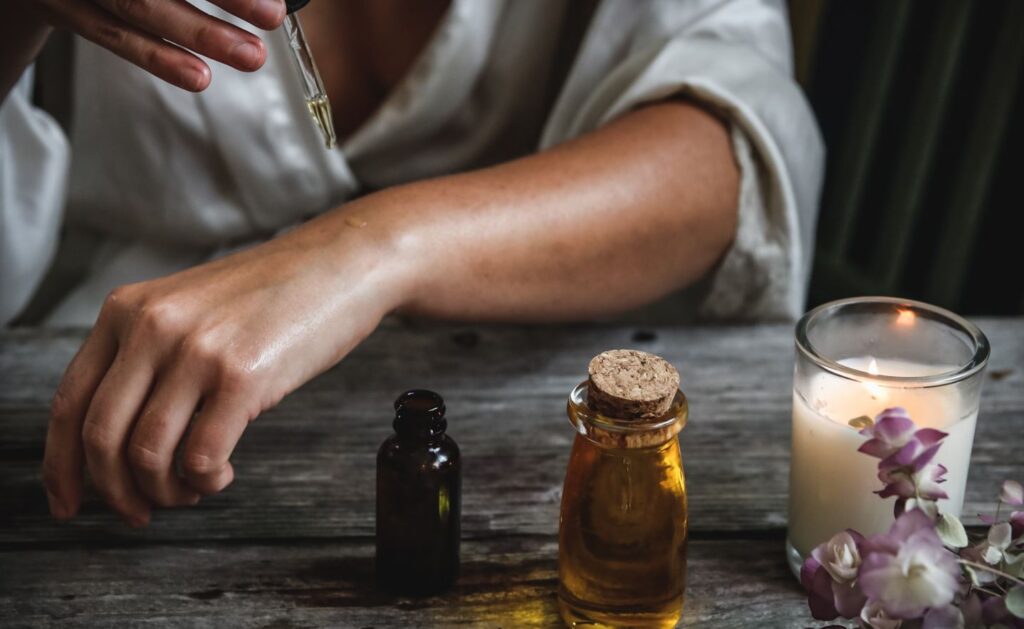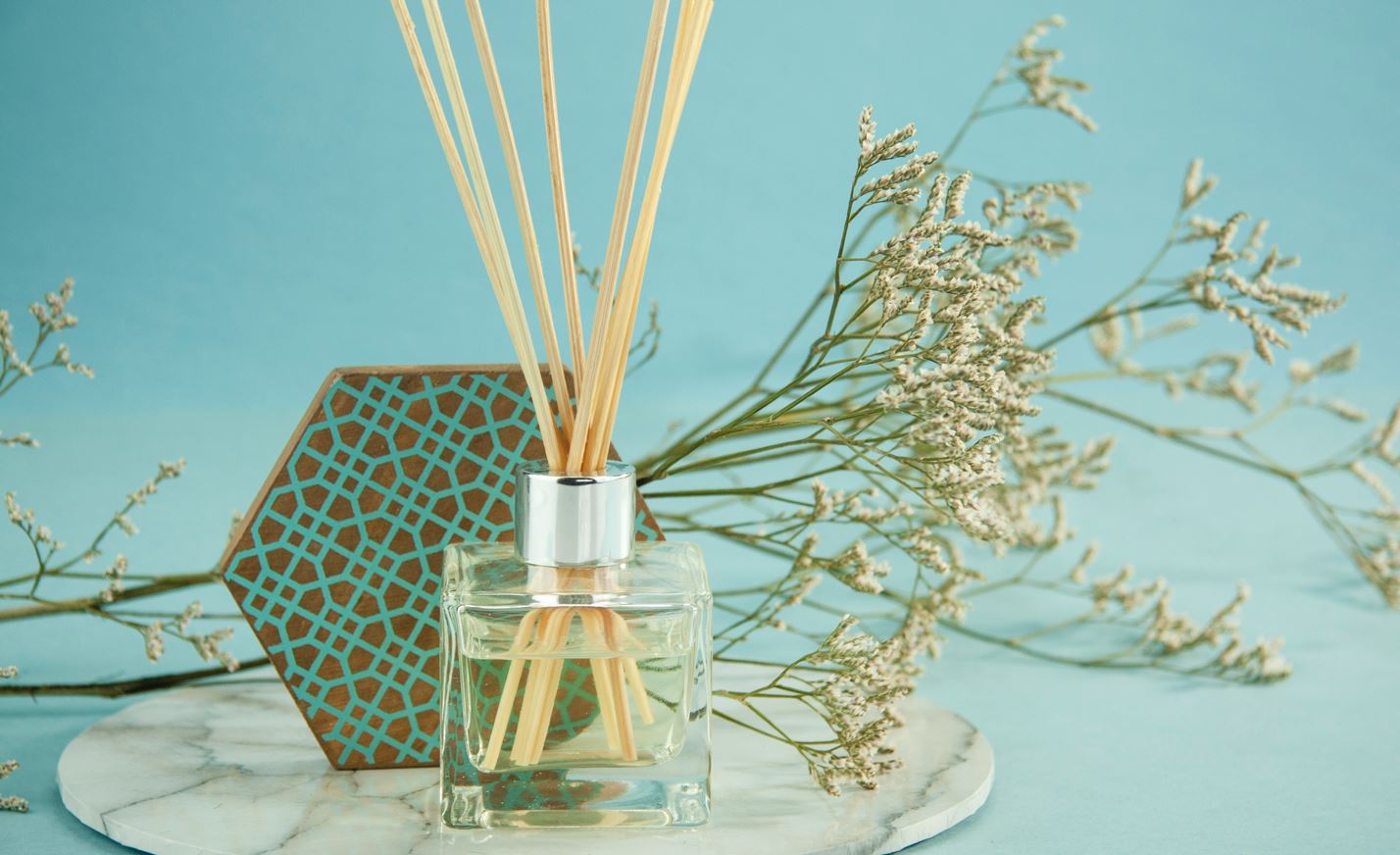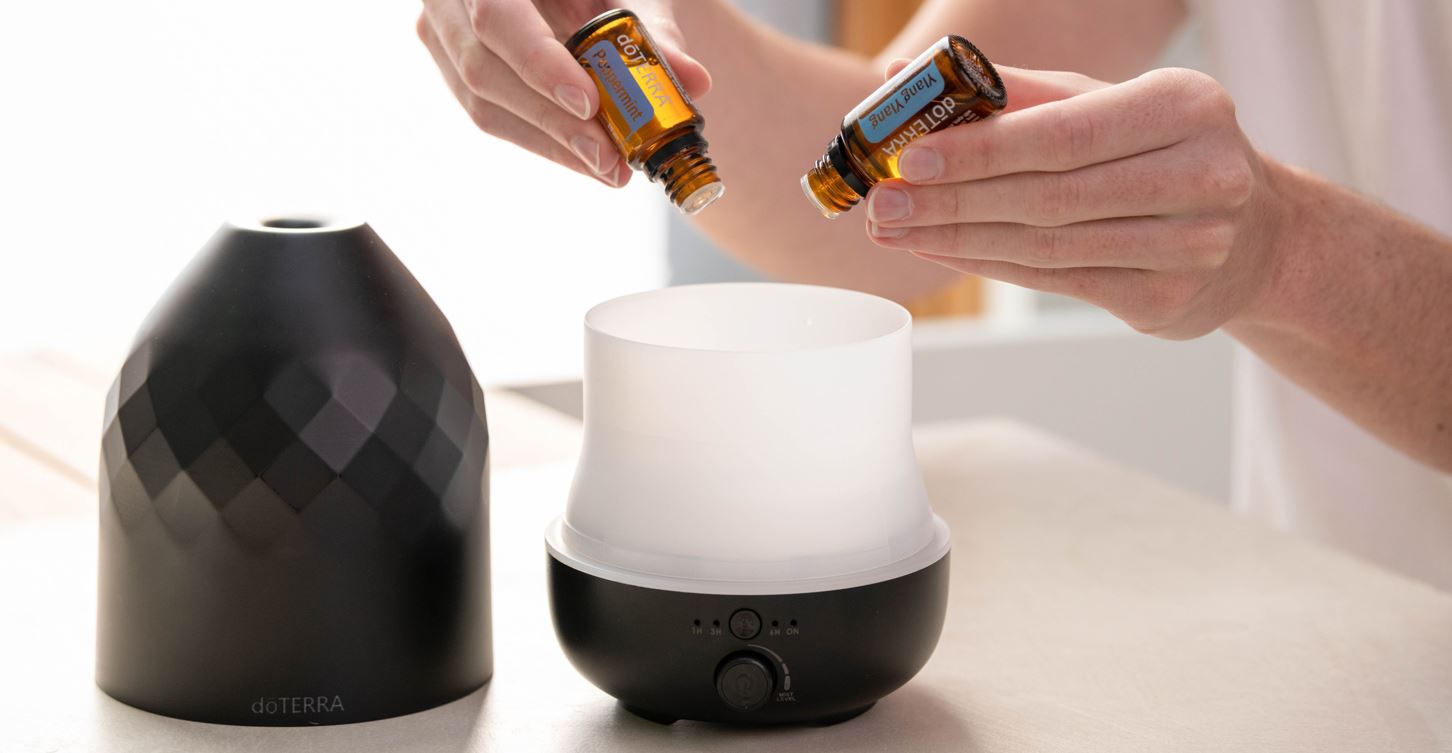Have you ever entered a space and been struck by its uplifting and comforting aroma? You probably ran into an oil diffuser at some point. But what is an oil diffuser, and how does it work its magic?
An oil diffuser is a machine that releases fragrant drops of essential oils into the air. These gadgets have become increasingly popular in recent years thanks to their purported benefits in helping users relax, get a better night's sleep, and experience overall better health. Although they may seem straightforward, they are actually more complex than one might assume.
Wondering what oil diffusers are, how they function, and how you might utilise one to turn your house into a relaxing haven? This post will delve into oil diffusers, explaining what they do, which oils work best, and how to settle on the best option for you. Let's take a trip via scent and discover the magic behind these beautiful marvels.
Oil Diffusers: What Are They?
An oil diffuser is a pretty straightforward device that, depending on the oil used, can provide a relaxing or pleasant aroma by dispersing essential oil molecules into the air.
Various essential oils are promoted for various purposes; lavender, for instance, is said to aid in restful sleep. Diffusers are designed to spread particles throughout a space without overwhelming the air quality.
Diffusing Oil: How It Works
Diffusers for essential oils simply release the oils into the air. By inhaling, you can experience the benefits of relaxation and sensory stimulation.
For instance, it can be extremely helpful when trying to unwind from a hectic day. Diffusing essential oils in this way also cleans the air while releasing their lovely aroma.
Several Varieties of Oil Diffusers
Diffusers release the oils into the air in a variety of ways. While there are advantages to using each, there are also drawbacks to each.
- Humidifying or Ultrasonic
- Electric or Heat
- Evaporative
- Nebulising
Humidifying or Ultrasonic Oil Diffusers
Oil molecules are dispersed into a fine mist by ultrasonic vibrations. For the electronic frequencies of the diffuser to release the oil as a mist, the essential oil must first be diluted with water.
If you want to humidify the air, especially in the winter, an ultrasonic diffuser is an excellent option because it functions similarly to a cold humidifier. Oils are harmful to plastic; thus, the plastic ultrasonic components must be cleaned regularly.
Does an ultrasonic humidifier use heat?
Because the ultrasonic diffuser's procedure is adiabatic—meaning the oil changes forms without heat—the oil remains undamaged and unaltered, allowing you to get all the therapeutic advantages of the plant without compromising its integrity.
Because of the lower risk than a candle, ultrasonic diffusers are also a fantastic solution in settings with children.
Is it possible to utilise an ultrasonic diffuser as a humidifier?
A water-based ultrasonic diffuser can also serve as a humidifier. If you want the aroma of your oil to linger for as long as possible yet dislike strong fragrances, this is a great option.
Electric or Heat Oil Diffusers
A heat diffuser applies heat, typically electricity, to oil to convert it to gas rather than using a fan. Heating oil can either dilute it or make it stronger, depending on its chemical make-up.
These diffusers are undetectable because there is no fan involved. Candles, electric heaters, and lamp rings are all examples of heat diffusers.
In what ways do heat diffusers fall short?
Heat diffusers are hard to beat when seeking a low-cost but effective solution. They are effective at dispersing essential oil. However, the heat used to do so can reduce the oil's therapeutic value.
Burning flames can be particularly hazardous in some settings, such as when used near youngsters.
Evaporative Oil Diffusers
Oil is converted into gas using a little fan and evaporates into the air in this diffuser. However, the oil loses some of its effectiveness as it evaporates. This is an excellent option for a fast, occasional aromatic experience.
To what extent does an evaporative diffuser help?
An absorbent pad or wick stores the oil in an evaporative diffuser. That means the oil will evaporate more slowly and steadily than with other diffusers.
Nebulisers
These diffusers utilise compressed air to disperse an oil mist. When an oil is sucked to the top of a diffusion tube using a vacuum, the scent is released in a rush. Nebulising diffusers are low-maintenance because they don't need water or heat. These are an excellent choice for anyone worried about their effect on the natural world.
Use of nebulisers in the home.
Nebulisers are fantastic since you don't have to use any kind of heat or water to use them. A nebuliser may be recommended for people with asthmatic or other respiratory disorders to quickly feel the benefits of their medicine.
Compared to an inhaler, the nebuliser provides a more steady and prolonged dose of medicine to the lungs.
The Benefits of Oil Diffusers
Breathing more accessible is only one of the many benefits you can experience from using an oil diffuser. Hypertensive individuals can benefit from the blood pressure-lowering properties of several essential oils, especially those with a soothing effect.
However, the therapeutic advantages of essential oils are more pronounced when the oils are taken internally in very small doses or applied topically.
Aromatherapy is widely regarded as one of the most efficient methods for introducing essential oils into the body's circulatory system. This aids the limbic system responsible for memory, emotion, and mood regulation.
Among aromatherapy's many benefits are:
- Has a calming and relaxing effect.
- Energises and reinvigorates
- Motivates and inspires
- Aids in preventing muscle and joint breakdown
- Facilitates better concentration
- Boosts digestion
Like making your unique perfume by combining different oils, you can blend your unique oil diffuser by blending distinct essences. Pick your notes with both aroma and health benefits in mind.
Essential Oil Diffusers: Some Safety Measures to Take
Since essential oils are derived from plants, you might assume they are safe to use. That's not the case, though.
A quick trip to the veterinarian is in order before you use an essential oil diffuser in the same room as your pets. Inhalation of some oils may be harmful to animals.
If you are nursing, pregnant, or have young kids, it is best to play it safe and get your doctor's approval before using an essential oil diffuser. Those who suffer from allergies should also educate themselves.
Essential oils should never be applied externally without using a carrier oil, such as jojoba, rosehip, or coconut oil, as a diluting agent. Direct application of some essential oils from the container to the skin might result in severe skin irritation.
If you start to feel different or observe any negative health impacts, you should cease using the diffuser immediately. Contact a medical professional and make sure the windows are open for ventilation.
FAQs About Oil Diffusers
Oil diffusers can be used in large rooms or open spaces, but it's essential to consider the coverage area of the diffuser. Some diffusers are specifically designed for larger spaces and have a higher output to disperse oils effectively throughout the room. Choosing a diffuser with sufficient coverage for the size of the room is recommended, or consider using multiple diffusers strategically placed to ensure adequate scent distribution.
The recommended run-time for an oil diffuser can vary depending on the diffuser model and personal preference. Generally, running an oil diffuser for 30 minutes to 1 hour at a time is advisable. This allows for proper diffusion of the essential oils without overwhelming the space. However, some diffusers have timer settings that can be adjusted to your desired duration. It's essential to refer to the manufacturer's instructions for specific guidance on run time.
Proper cleaning of your oil diffuser is crucial to maintain its performance and prevent the buildup of oils or residue. The following steps can be followed for cleaning:
- Unplug the diffuser and empty any remaining water and oils.
- Fill the reservoir halfway with clean water and add a small amount of mild detergent or vinegar.
- Use a soft brush or cloth to gently scrub the interior of the reservoir, including the ultrasonic plate or nebuliser.
- Rinse the reservoir thoroughly with clean water to remove any soap or vinegar residue.
- Wipe the exterior of the diffuser with a damp cloth.
- Allow all parts to dry completely before reassembling the diffuser.
Changing the water and oils in your diffuser after each use or at least every 24 hours is recommended. This helps to maintain the freshness and potency of the essential oils. If you plan to switch to a different oil, it's advisable to clean the diffuser before adding a new oil to prevent the unwanted mixing of scents. Additionally, if you notice any changes in the aroma or performance of the diffuser, cleaning and changing the water and oils can help to address any potential issues.
Some oil diffusers help with allergies. Lavender and eucalyptus are anti-inflammatory and decongestant essential oils that may improve allergy problems. However, some people may be allergic to essential oils. Before diffusing essential oil, test a small amount for allergies or sensitivities. High-quality, pure essential oils and proper dilution can also reduce unpleasant responses. Before using essential oils in an oil diffuser, consult a doctor if you have severe allergies or concerns.
Diffusing Essential Oils: Choosing the Right One
The key to a stress-free aromatherapy session that also works is selecting high-quality essential oils. Also, it's probably apparent, but you shouldn't wear fragrances that you don't like the smell of yourself.
Your best bet when buying essential oils is to learn about and seek out oils distilled in a "clean" manner. These strategies stay away from potentially hazardous solvents. Choose an essential oil formulated explicitly for aromatherapy if you use it in a diffuser.
If you're new to aromatherapy or using essential oils, it may take some trial and error until you find the scents or blends you like best. If you know what effects you want to achieve with aromatherapy, you may choose the best fragrance.
You must research to get the most out of your aromatherapy sessions and find a diffuser that works for you. The following should be considered while picking up a diffuser for your essential oils:
Room Size and Coverage
Think about the space you intend to utilise the oil diffuser in. Check the diffuser's coverage area to ensure it can adequately distribute oils throughout the space.
Run-Time and Timer Settings
Think about how long you'd like the diffuser to run for. Depending on the model, the interval between charges might range from a few minutes to many hours. Look at diffusers with programmable timers so you can set them to turn off automatically or diffuse only at certain times.
Lighting and Design
Find diffusers with LED lights that can be adjusted in colour and brightness to create a relaxing atmosphere. Think about how the diffuser will look in its intended setting and how it will fit your style.
Water Capacity and Ease of Use
Consider how often you refill the diffuser and go from empty to full. Try to find diffusers with characteristics like simple controls and fillable reservoirs that are straightforward to operate.
Safety Features
Inspect the diffuser for fail-safes like an automated shutoff in the event of a low water level. Ensure the diffuser is safe by purchasing one constructed from high-quality, BPA-free materials.
Noise Level
If you intend to use the diffuser in a peaceful setting, such as a bedroom or office, you should consider how loud it is. To avoid disturbing those around you, seek out diffusers with a low noise level.
Budget Considerations
Find out how much you can spend on an essential oil diffuser. Research what's available within your price range, then evaluate the various features and alternatives.
Conclusion
Diffusers for oils are appliances that disperse aromatic oil mist into the room. They have gained popularity in recent years due to claims that using them might improve one's ability to unwind, sleep well, and generally feel healthier. Diffusers might be humidifying or ultrasonic, electric or heat evaporative, nebulising, or any combination to release the oils into the air. Diffusers that use ultrasonic vibrations to disperse oil into a fine mist are known as humidifiers or ultrasonic oil diffusers. In contrast, diffusers that use electricity or heat to vaporise the oil into a mist are known as electric or heat evaporative nebulising oil diffusers. Because of the ultrasonic diffuser's adiabatic nature, the oil's therapeutic benefits are preserved without the need for heat.
Diffusers that use electricity or heat to transform oil into gas are called electric or heat oil diffusers. Nebulisers use compressed air to disseminate an oil mist, while Evaporative Oil Diffusers use a small fan to turn oil into gas and evaporate it into the air. Nebulisers are low-maintenance medical devices that help those with asthma and other breathing problems. A nebuliser is a machine that sprays drugs into the air for inhalation at a constant, steady rate. One of the most effective ways of delivering essential oils to the bloodstream is by inhalation.
Many people believe that aromatherapy is the best way to get the health benefits of essential oils into your bloodstream. It can be blended with different essences and has a calming and relaxing impact, as well as energising and reinvigorating effects, the ability to encourage and inspire, the ability to aid in preventing muscle and joint deterioration, and the ability to improve attention and digestion. Always dilute essential oils with a carrier oil like jojoba, rosehip, or coconut before applying them topically. The key to a relaxing and practical aromatherapy session is picking the proper essential oil. Considerations such as room size, coverage area, run time and timer settings, illumination, design, water capacity, ease of use, safety features, noise level, and budget are paramount when shopping for an essential oil diffuser. There are many factors to consider when shopping for a water purifier, including the room size and coverage, the run time and timer settings, the lighting and design, the water capacity and ease of use, the safety features, the noise level, and the budget.
Content Summary
- An oil diffuser releases fragrant drops of essential oils into the air.
- Oil diffusers have gained popularity for their relaxation and health benefits.
- Diffusers spread essential oil molecules without overwhelming the air quality.
- There are various oil diffusers, including humidifying, electric, evaporative, and nebulising.
- Humidifying or ultrasonic diffusers disperse oil as a fine mist using ultrasonic vibrations.
- Ultrasonic diffusers can also function as humidifiers.
- Electric or heat diffusers convert oil to gas using heat and electricity.
- Heat diffusers can reduce the therapeutic value of the oil.
- Evaporative diffusers use a fan to convert oil into gas, providing a fast aromatic experience.
- Nebulisers disperse an oil mist using compressed air.
- Nebulisers are suitable for those with respiratory disorders and can deliver medicine to the lungs.
- Oil diffusers offer relaxation, energy, motivation, and improved digestion.
- Aromatherapy with essential oils can impact memory, emotion, and mood regulation.
- Essential oil blends can be created for both aroma and health benefits.
- Safety measures should be taken, including vet approval for use around pets and caution during pregnancy or allergies.
- Essential oils should be diluted with carrier oils before external application.
- Cease diffuser use if negative health impacts are observed.
- High-quality essential oils distilled in a "clean" manner should be selected.
- Consider the room size and coverage when choosing an oil diffuser.
- Run-time and timer settings should be considered for desired diffuser operation.
- LED lights and design can create a relaxing atmosphere.
- Water capacity and ease of use are essential factors to consider.
- Safety features like automatic shutoff and BPA-free materials should be inspected.
- Noise level should be considered for peaceful settings.
- Budget considerations should be taken into account.
- Research and trial and error may be necessary to find preferred scents and blends.
- Learn about the effects of different essential oils for desired aromatherapy benefits.
- Pick a diffuser that suits the intended space and style.
- Evaluate diffuser features such as lighting, water capacity, safety, and noise level.
- Set a budget and explore options within the price range.


